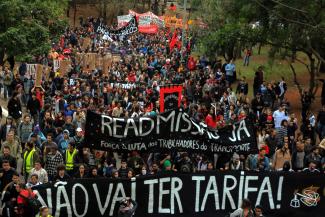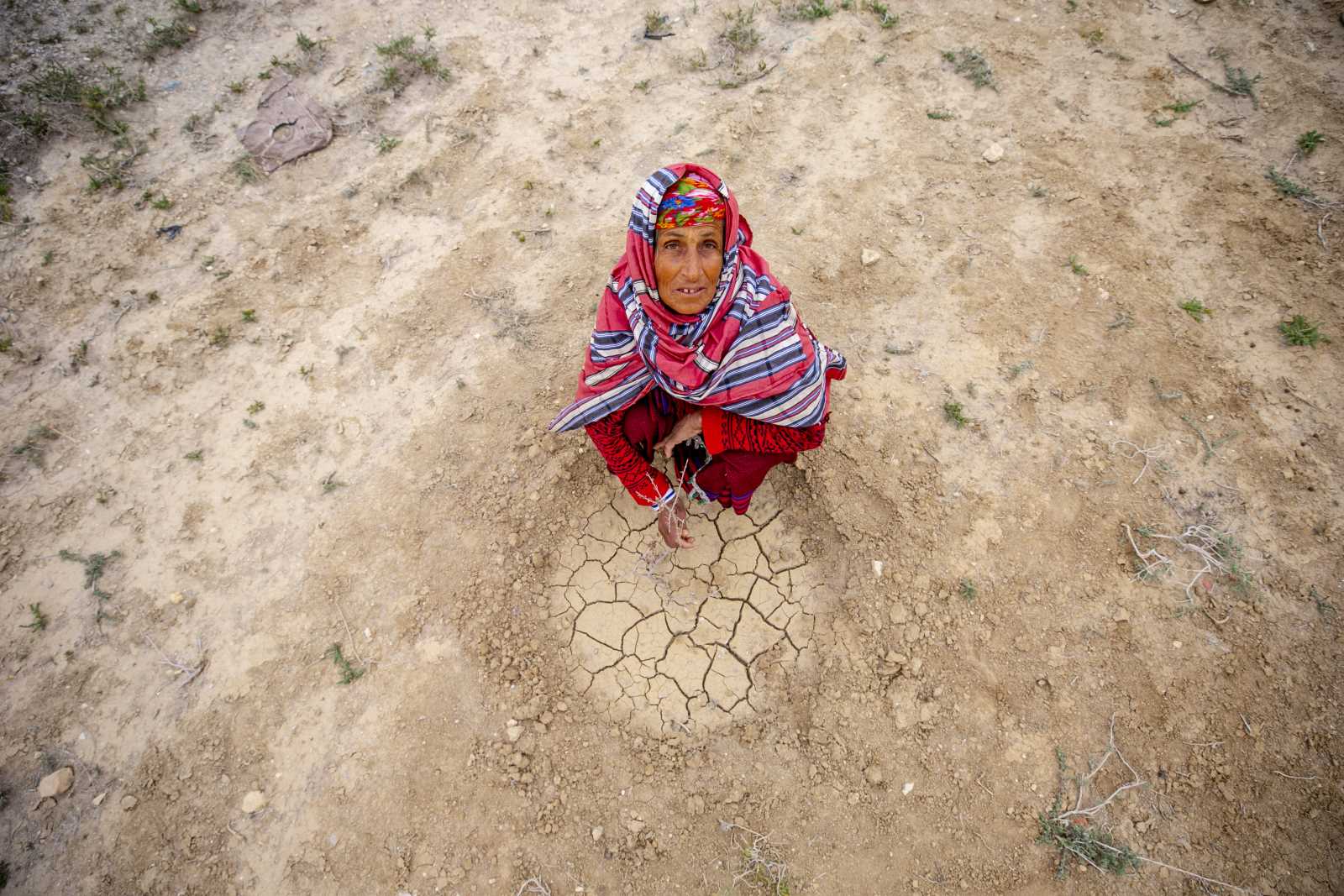Relevant reading
An alternative model of governance

At the moment, the international community is engaged in an intense debate about what development model will best serve to rise to challenges like climate change and the economic, energy and food crises facing the world today. Many actors want to avoid repeating the shortcomings of the Millennium Development Goals (MDGs). Critics emphasise in particular that the MDGs were imposed in a top-down fashion by the rich industrialised countries of the global North, while the countries of the global South bore sole responsibility for making sure the goals were implemented. They also lament the fact that the MDGs were merely conceived as a policy objective rather than as a binding standard under international law. As a result, the MDGs are not legally enforceable.
Many UN documents on the post-2015 development agenda are based on the notion of global development partnerships. Nevertheless, poverty continues to be treated more or less as a natural phenomenon, rather than as the result of unequal power relations. The private sector in particular will play a central role in the new global partnerships. In a research paper for the South Centre, an international organisation of developing countries, Nayyar (2011) criticises the report by the High-Level Panel of Eminent Persons for continuing to promote a development model that is focused on economic growth. Kumi, Arhin and Yeboah (2013) take issue with the fact that few seem willing to question an ideology of progress that is based on privatisation and deregulation.
The UN, World Bank and International Monetary Fund (IMF) champion corporate social responsibility as an element of good governance. They endorse public-private partnerships (PPPs) as an example of global development partnerships. The problem is that PPPs are thus promoted to a role of central development actors in countries with weak economies. As a consequence, corporate power increases to an alarming degree, often thwarting local and national economic activity.
Many non-governmental organisations (NGOs) believe that this trend is standing in the way of sustainable development that is capable of empowering disadvantaged people (IBON Policy Brief 2014). Furthermore, as a result of the global financial crisis, many countries, both rich and poor, adopted austerity policies that prevented governments from making adequate investments in social and environmental infrastructure (McCoy et al. 2009).
Global governance in crisis
Scholars argue that global governance is in crisis. They state that international agreements are not sufficiently binding, and that the current form of global governance lacks adequate legitimacy. Rather than resulting from a democratic process, global policies on economic, foreign, environmental and even development affairs are frequently determined by power-political interests, writes Brand (2003). Moreover, the UN institutions, which are considered relatively representative and, therefore, have largely been marginalised and increasingly depend on funding from private donors. More and more, global summits and organisations, like the G-20, the World Trade Organisation (WTO), the IMF and the World Bank are setting the global agenda. These groups’ decision-making do not tend to be transparent. Therefore, the current form of global governance should be reconsidered as part of the post-2015 debate.
Whether that will actually happen is doubtful. Civil society actors have indeed been granted a primary role in the post-2015 process. This is a response to the criticism that the MDGs were formulated in a non-inclusive procedure. However, the new inclusiveness must be viewed with caution. Involvement of civil-society organisations does not necessarily guarantee that the dominant development paradigm will be revised in any meaningful way.
First of all, it must be recalled that, at the UN level in particular, the current model of global governance has been organised as a multi-stakeholder process since the 1990s. Procedures explicitly incorporate non-state actors. According to Brand, Demirovic and Görg (2001), NGOs often carry out development measures that should be performed by the state. Increasingly, states are giving up roles of leadership and systematically delegating the provision of public services to non-state actors, Wolf (2000) writes.
NGOs are still considered the "good guys", especially by the public. But this view ignores the fact that NGOs compete with each other for funding from governments and private-sector corporations. Therefore NGOs do not operate outside of system constraints; instead, they face a certain amount of pressure to professionalise. Wahl (1997) warns that NGOs risk becoming dependent on donors. He also argues that they are in danger of being instrumentalised by both national governments and international organisations (see D+C/E+Z 2014/6, p. 256 f.). By involving civil-society players, governments are increasingly able to legitimise undemocratic decisions. When NGOs mitigate crises, they - often unintentionally - help to stabilise unjust power structures.
The post-2015 process must find a way to fully realise the potential of NGOs. This is essential. But it is debatable to what extent the international community is heeding calls for a serious re-orientation of the current development agenda. Such demands are made by critical social movements with roots in social struggles.
Beyond the post-2015 agenda
What conclusions can we draw from these considerations? First and foremost, we need a development agenda that is based on universal human rights. The new agenda should not just propose policy goals, but also establish legally enforceable procedures. Under international law, obligations for states and private businesses must be clearly defined. This is an essential precondition for addressing the structural impact of poverty and inequality and for respecting ecological and economic boundaries (Heinrich-Böll-Stiftung 2014).
In addition, comprehensive changes to development policy, economic policy, financial policy and production and consumption habits are needed. Furthermore, we must establish a form of global governance that allows affected people to participate in policy making. Political structures must be created at the national and supranational level that suit a human-rights based, democratic, bottom-up logic.
An alternative model of global governance is being proposed - one that is founded on the political struggles faced by social movements. I call this "governance in a world society" (Meisterhans, 2010). The goal is to establish institutional spaces that extend beyond the established public to involve additional social spheres and involve social movements. That is the only way to continuously break up and subvert hegemonic power. This perspective has implications far beyond the post-2015 process. However, the process should serve to promote human rights as the organising principle of global governance and development.
Nadja Meisterhans is a scientific advisor to the director of medico international, an civil-society organisation based in Frankfurt. The organisation discussed the post-2015 agenda, among other things, at the second Frankfurt Conference on Aid, held in February on the topic "Beyond Aid".
meisterhans@medico.de
http://www.medico.de














